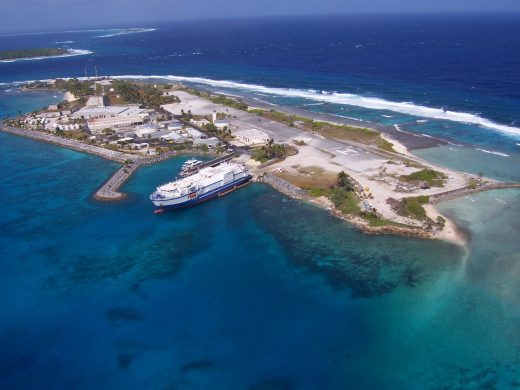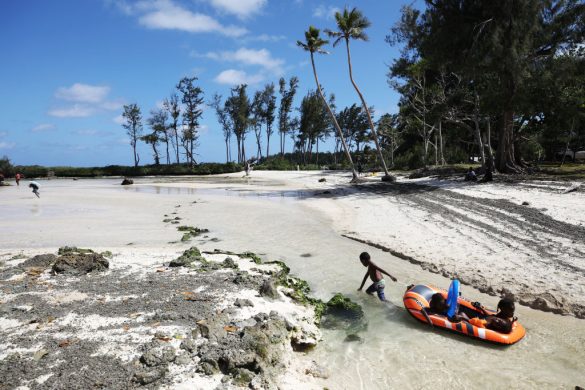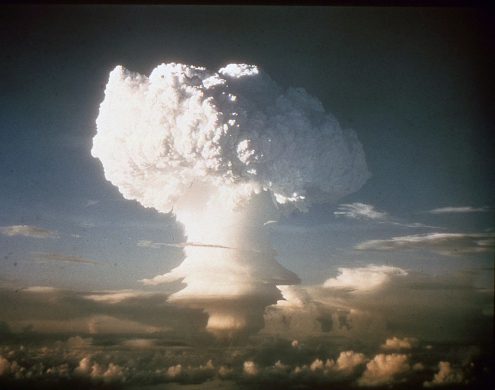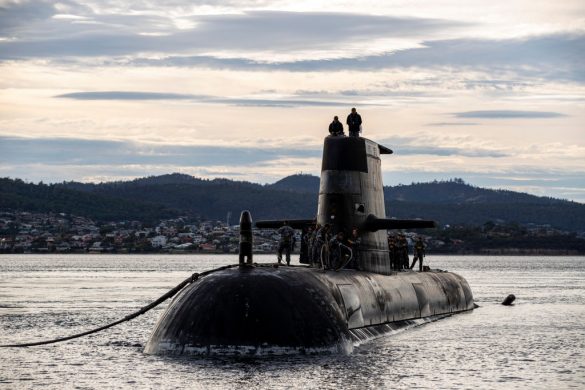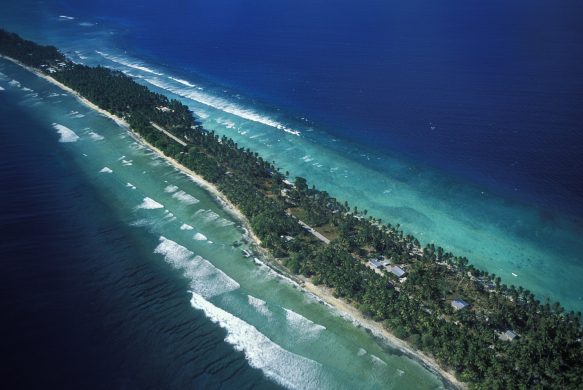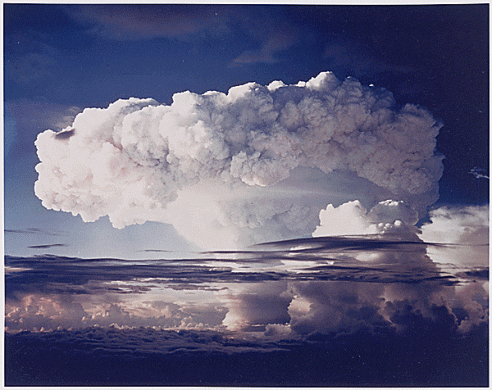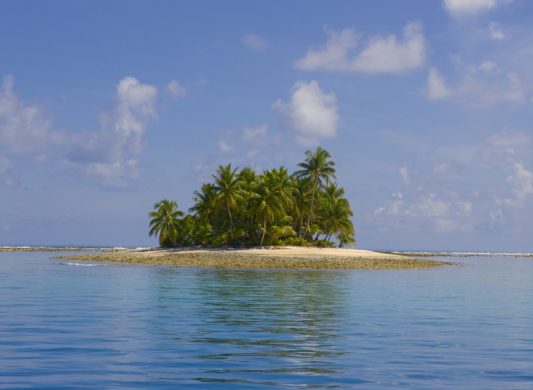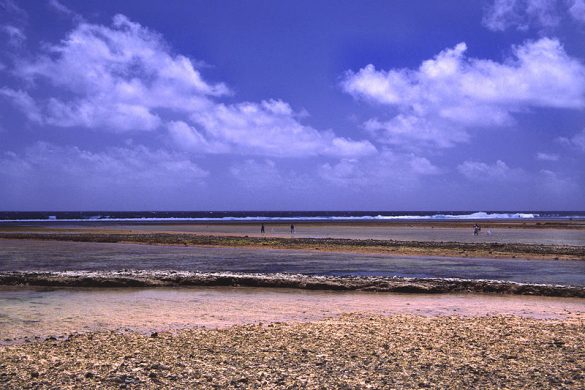Massive oversvømmelser har ramt Marshall-øerne. I en artikel til nyhedsmediet Responding to Climate Change, kalder landets udenrigsminister det en „klimakatastrofe‟ og siger, at øerne kan forsvinde helt, hvis ikke de globale udledninger nedbringes.
Majuro Atoll, fredag d. 7. marts (RTCC).
Af Phillip H. Muller, Udenrigsminister på Marshall-øerne.
This is the most serious king tide we have seen in the Marshall Islands for some 30 years, and the third flooding of Majuro atoll, our capital, in the last year alone.
There is no question that these events are increasing in their seriousness and regularity, consistent with the clear scientific information that sea levels are rising faster in the Central-West Pacific than nearly anywhere else in the world.
Last June, while we battled the effects of a devastating drought across our northern atolls, a king tide forced the closure of our airport and flooded several neighborhoods in Majuro, including the home of the President.
The waves simply crashed over the seawall he built with his own hands. The President tells me that he has since added another foot to the height of his protective sea wall. Such is the new reality of climate change in the Pacific.
Around 1,000 people were displaced as a result of the king tide, and a number of family homes were completely wiped out by the encroaching seas. Most are staying with family and friends, or are in temporary relief centers set up in some of our schools.
On Tuesday, the Cabinet declared a State of Emergency, and government agencies are now in high gear to help the communities in Majuro to deal with the situation. But the cleanup has only just begun, and many of the Marshallese affected will never fully recover.
I worry that even as life appears to return to normal in the coming week, we will soon be dealing with another climate disaster.
While we are doing what we can, even the most conservative estimates of sea-level rise, including from the latest US National Climate Assessment, suggest that RMI will literally be wiped off the map some time before the end of the century, given the appalling lack of effort by big emitters to reduce their greenhouse gas emissions.
This is a reality that we find very difficult to comprehend – it would mean that the Marshall Islands, its people and its culture would be lost forever. This is not a future we are prepared to contemplate.
It is why we have put the fight against climate change at the top of our political agenda, and on the table for each and every one of our diplomatic engagements. There is no greater threat, and no greater challenge for my country than climate change.
While king tides are not new to the Marshall Islands, their frequency and ferocity are clearly intensifying. For those of us in the Pacific, silly discussions about scientific truth are futile.
We know what we see with our own eyes, and our tide gauges prove that the oceans are rising. We know there is only one explanation for this unprecedented phenomenon: climate change has arrived.
Last month Secretary Kerry said climate change was like a “weapon of mass destruction” – well here in the Marshall Islands, lying at an average of just six feet above sea level, we are at ground zero.
Diplomatisk løsning
That said, we are doing more than simply waving our arms in distress. We are prepared to demonstrate climate leadership, and try to bring the rest of the world along with us.
At the Pacific Islands Forum Leaders meeting we hosted last September, we issued a call to arms through our Majuro Declaration for Climate Leadership.
We are glad to have received the support of all Forum countries to do more to reduce their emissions, including Australia and Zealand, and have welcomed further commitments from the United States, the United Kingdom, the European Union and Mexico. But much more work still needs to be done.
Next month, our tiny atoll nation will host the 13th meeting of the Cartagena Dialogue for Progressive Action, a unique coalition of more than 30 developed and developing countries that came together in the aftermath of the Copenhagen Climate Summit with a common and progressive purpose: to carve out an ambitious new climate treaty, with everyone on board, and with everyone committed to ensuring the survival of even the world’s most vulnerable countries.
Our meeting in the first week of April comes just months before the UN Secretary-General convenes world leaders to build support for a new global treaty in Paris in late 2015.
Again, there is no better way to energize the world’s climate diplomats than to have them see for themselves the urgency of our struggle. This year is critical to ensuring we get an agreement before it’s too late.
Se en video fra oversvømmelserne på øen her: http://www.youtube.com/watch?v=p-FfrWubDeA
Responding to Climate Change (RTCC) er en nyhedsside med fokus på klimaforandringer og fossilfri udvikling. Du kan læse mere om RTCC her: http://www.rtcc.org/about-us/


